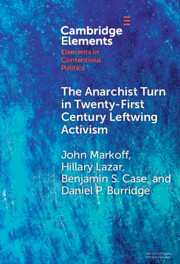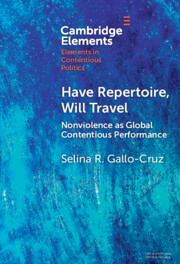544 results
1 - Introduction: Where It All Began
-
- Book:
- Native-Speakerism and Trans-Speakerism
- Print publication:
- 31 July 2024, pp 1-15
-
- Chapter
- Export citation
6 - Voices of University Professors
-
- Book:
- Native-Speakerism and Trans-Speakerism
- Print publication:
- 31 July 2024, pp 112-135
-
- Chapter
- Export citation
2 - Well-Trodden Path: Native-Speakerism
-
- Book:
- Native-Speakerism and Trans-Speakerism
- Print publication:
- 31 July 2024, pp 16-43
-
- Chapter
- Export citation
5 - Voices of Graduate School Students
-
- Book:
- Native-Speakerism and Trans-Speakerism
- Print publication:
- 31 July 2024, pp 88-111
-
- Chapter
- Export citation
3 - Untrodden Path: Trans-Speakerism
-
- Book:
- Native-Speakerism and Trans-Speakerism
- Print publication:
- 31 July 2024, pp 44-62
-
- Chapter
- Export citation
4 - Voices of Secondary School Teachers
-
- Book:
- Native-Speakerism and Trans-Speakerism
- Print publication:
- 31 July 2024, pp 63-87
-
- Chapter
- Export citation
7 - Conclusion: Where It All Begins (Again)
-
- Book:
- Native-Speakerism and Trans-Speakerism
- Print publication:
- 31 July 2024, pp 136-149
-
- Chapter
- Export citation
Introduction
-
- Book:
- Negotiating Legality
- Print publication:
- 27 June 2024, pp 1-9
-
- Chapter
- Export citation
2 - From Complex Interdependence to Complex Governance
- from Part II - Informality of Institutions
-
-
- Book:
- Informal Governance in World Politics
- Published online:
- 23 May 2024
- Print publication:
- 30 May 2024, pp 31-52
-
- Chapter
- Export citation
25 - Lexical Borrowing
- from Part 4 - Lexicon
-
-
- Book:
- The Cambridge Handbook of Slavic Linguistics
- Published online:
- 16 May 2024
- Print publication:
- 23 May 2024, pp 545-556
-
- Chapter
- Export citation
The Wrong Winners: Anti-Corporate Animus and Attitudes Towards Trade
-
- Journal:
- British Journal of Political Science , First View
- Published online by Cambridge University Press:
- 17 May 2024, pp. 1-18
-
- Article
-
- You have access
- Open access
- HTML
- Export citation
Globalization, welfare, and inequality: Evidence from transoceanic market integration, 1815–1913
-
- Journal:
- Journal of Global History , First View
- Published online by Cambridge University Press:
- 29 April 2024, pp. 1-26
-
- Article
-
- You have access
- Open access
- HTML
- Export citation
In Fairness to Nottebohm: Nationality in an Age of Globalization
-
- Journal:
- Asian Journal of International Law , First View
- Published online by Cambridge University Press:
- 25 April 2024, pp. 1-31
-
- Article
- Export citation
Overseas Trade and War. Reconstructing a Late Eighteenth-Century East India Company Voyage to Asia Between Routine and Unpredictability
-
- Journal:
- Itinerario / Volume 48 / Issue 1 / April 2024
- Published online by Cambridge University Press:
- 07 May 2024, pp. 64-81
- Print publication:
- April 2024
-
- Article
-
- You have access
- Open access
- HTML
- Export citation
10 - Tango’s Journey from a Río de la Plata Dance to a Globalized Milonga
- from Part III - Tango Dance
-
-
- Book:
- The Cambridge Companion to Tango
- Published online:
- 15 March 2024
- Print publication:
- 28 March 2024, pp 173-188
-
- Chapter
- Export citation
7 - Economic Tradecraft and Commercial Diplomacy
-
-
- Book:
- Diplomatic Tradecraft
- Published online:
- 15 March 2024
- Print publication:
- 28 March 2024, pp 150-173
-
- Chapter
- Export citation

The Anarchist Turn in Twenty-First Century Leftwing Activism
-
- Published online:
- 14 March 2024
- Print publication:
- 11 April 2024
-
- Element
- Export citation

Have Repertoire, Will Travel
- Nonviolence as Global Contentious Performance
-
- Published online:
- 12 March 2024
- Print publication:
- 04 April 2024
-
- Element
- Export citation
Contractor states and globalization of the market for naval artillery technology (1500–1750)
-
- Journal:
- Journal of Global History , First View
- Published online by Cambridge University Press:
- 06 March 2024, pp. 1-19
-
- Article
-
- You have access
- Open access
- HTML
- Export citation
17 - The Economic History of Iberia in a Wider Context, 1500–1800
- from Part II - Globalization and Enlightenment, 1500–1800
-
-
- Book:
- An Economic History of the Iberian Peninsula, 700–2000
- Published online:
- 22 February 2024
- Print publication:
- 29 February 2024, pp 443-470
-
- Chapter
- Export citation



